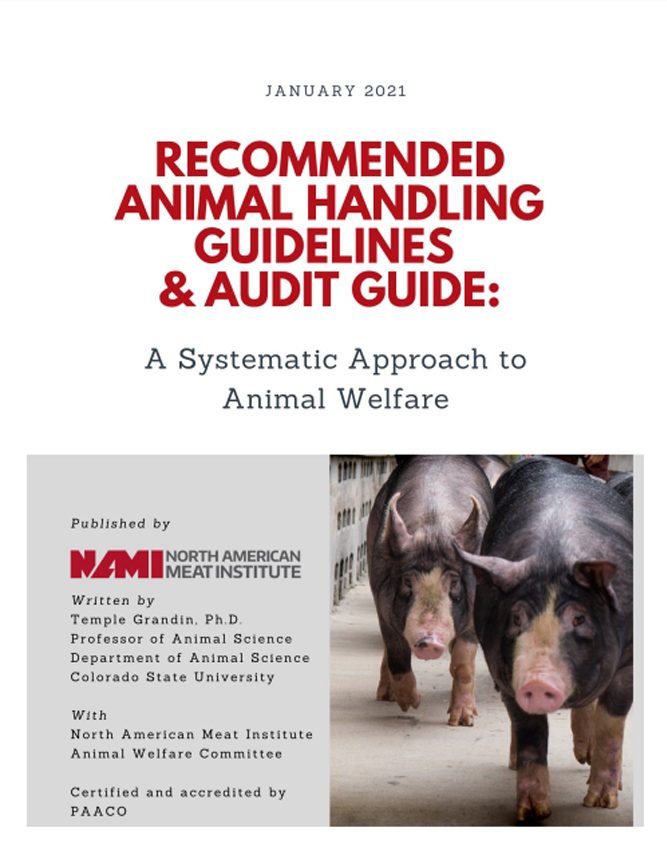Meat Institute Animal Handling Guidelines and Audit
Slaughter Plant Guidelines and Audits
Since 1991, the Meat Institute has encouraged its members to subscribe to voluntary animal welfare guidelines and embrace auditing programs and they have done so. The meat industry was the first sector in animal agriculture to develop such guidelines and begin self-audit program.
To help promote good animal welfare practices, the Meat Institute houses the widely-utilized Meat Industry Animal Welfare Guidelines and Audit.
The Meat Institute Animal Welfare Committee voted to make additional changes to the 2024 revision of the Animal Handling Guidelines and Audit, and while these additional changes are made, voted to replace the 2024 revision with the 2021 revision of the Animal Handling Guidelines and Audit for industry.

Meat Institute Animal Handling Guidelines & Audit Guide
The guidelines provide industry stakeholders with best practices on transport, handling, and stunning.
The audit provides a tool to objectively assess animal welfare through transport, holding, and slaughter.
Supplemental Guidance:
Regulations
Federal Oversight
Meat plants that handle and slaughter live animals are the most regulated and inspected industry in America. Federal Humane Slaughter Act regulations are enforced by USDA’s Food Safety and Inspection Service (FSIS) and specify the proper treatment and humane handling of livestock slaughtered in USDA-inspected slaughter plants. The law’s provisions are numerous and include requirements that livestock be handled calmly with minimal excitement, that they never be dragged, that objects that cause unnecessary pain not be used to drive livestock, that water be provided in holding pens at all times, that feed be provided if an animal is at a plant more than 24 hours, and that livestock be rendered completely unconscious prior to slaughter. Federal inspectors are present at all times in plants that handle live animals and are empowered to take actions for compliance failures, including stopping production and even withdrawing inspection in extreme cases. FSIS releases notices, directives and other guidance (linked below) to the field as part of its oversight efforts.


